Photo author: Filuta AI | Caption: Founder of Filuta AI Filip Dvořák
17 / 06 / 2023, 17:00
SM presents an interview with Filip Dvořák, one of the founders of Filuta AI. Filuta AI is developing a new generation of composite intelligence. What exactly does it consist of? And how does Dvořák view the negative aspects of artificial intelligence? More information already in our interview.
1. Mr. Dvořák, your startup has been operating for less than a year, but it received the largest investment of 56 million crowns in the so-called pre-seed round of financing. How did you manage to achieve such success?
We got an investment of this size because we already had an MVP (Minimum Viable Product), several happy paying customers, an experienced team, and a massively growing market for AI applications at the time we approached investors. However, the metrics of success for us are mainly a positive impact on the world and market coverage, where we still have a long way to go.
2. The company Filuta AI deals with artificial intelligence, yet it is different - it develops a new generation of composite artificial intelligence. What is it actually useful for and on what principle does it work?
The concept of combining different modeling techniques within artificial intelligence to achieve better results alternates periodically in the AI field with periods when people try to solve all problems with a single modeling technique. Filuta is one of the drivers of the composite approach, where solving a problem by modeling a composition from a portfolio of artificial intelligences is itself driven by artificial intelligence.
3. Does the composite artificial intelligence have any limits, limitations that you are still tweaking?
AI portfolios are constantly growing. Just as the quality of individual intelligences and the ways of their composition are increasing. This process of incremental growth will continue over the long term and we are excited about the qualitative shifts we are seeing in just months.
4. How difficult is the development of one's own, in this case artificial intelligence, these days?
Deploying existing AI models for many standard business purposes is currently easy. Larger and less standard deployment purposes require supplementation by an AI expert. In the near future, we can expect the emergence of other AI products automating repetitive and boring areas of business management - we already see a number of products for accounting, law, supply chains, and many others.
5. What target segment are you targeting?
We believe that with our technology, we can democratize AI for small and medium-sized businesses across various industries. Today it is already a market whose value reaches approximately 600 billion dollars a year. Our specialization then is software for intelligent automation, i.e. automation with the help of artificial intelligence.
6. How do the companies themselves perceive the application of artificial intelligence in their operations? Are they open to new possibilities, or do you think an even more conservative point of view prevails?
Companies are gradually opening up and we notice that budgets are being prepared specifically for internal AI applications.
7. What do you think is the state's support for new technologies and innovations, including artificial intelligence?
We see great initiatives such as technology incubation by the CzechInvest agency with a segment focused on artificial intelligence. However, we would like the state to participate a little more in the support and development of one of the most fundamental technologies at the moment.
8. Doesn't the well-known slogan "a good servant, but a bad master" apply to artificial intelligence? From your point of view, doesn't artificial intelligence also have negative aspects and cannot be abused?
Every new technology represents a social challenge in terms of education and the acquisition of reasonable principles of its use. Artificial intelligence is no different from a screwdriver in this respect - it is a tool that primarily provides a lot of value, but without knowing how to use it, or when misused, it can cause harm.
Original publication – Security Magazin


